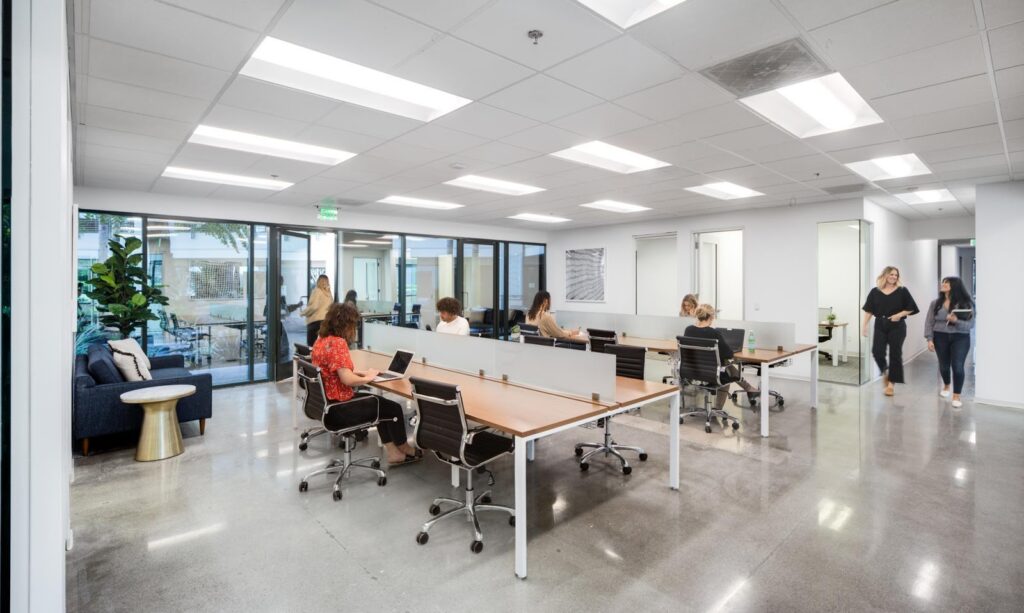No matter how big of a company you are, there’s a possibility that you might need to break your commercial lease, even though the terms in your legally binding contract agreed to lease terms that aren’t in your favor. That means you can’t simply move out of your building and state the agreement is over.
Read on to learn about the reasons you might want to break a lease, whether you can break a commercial lease or not, what happens when you severe a commercial lease, along with several practical tips on how to break a commercial lease legally.
Related – Temporary Office Space: Is It Right For Your Team?
Reasons You Would Want To Get Out Of A Commercial Lease
The following are several reasons that you might need to break a commercial lease with your current space:
- The space you’re in could be perfect, but if your landlord isn’t holding their end of the bargain, this could be problematic.
- The current office your team is in might not have enough room to accommodate everyone’s needs, making it necessary to expand and find new space.
- Downsizing might be what’s best for your company at the moment. This situation could be due to too much unnecessary space in your office.
- Your current office space isn’t ideal for your team. There are plenty of adjustments that could make operations run smoother. Whether the neighborhood isn’t perfect, commute time for most on your team is horrendous, or your partners may need a change of scenery to boost productivity.
If you’re in the middle of transitioning your company, or if it’s downsizing, you might need somewhere for people to work, or you may need meeting space. Either way, TailoredSpace has you covered with our lease-free spaces to suit most modern smaller companies’ needs.
Can a Commercial Lease Be Broken?
Whether you can end a commercial lease depends on what your commercial lease agreement says. There may be some clauses in there that allow you to do so. Otherwise, a couple of situations that might let you break your lease are if your landlord breached a lease provision or if your business has filed for bankruptcy.
What Happens When You Break A Commercial Lease?

Depending on what your landlord and you decide through negotiations or the commercial lease itself, leaving a commercial lease earlier than expected could lead to additional costs such as:
- Expenses that are related to advertising the property to find a new tenant.
- Agreed-upon early termination penalties.
- Legal fees if you and your landlord couldn’t agree on terms.
- The loss of your security deposit.
How To Break A Commercial Lease—Legally
Deciding how to get out of a business lease may be a difficult and expensive decision, but it could be a better investment for your team in the long run. Also, keep in mind that your landlord can legally end your lease without your agreement under a couple of conditions, such as if you don’t pay rent on time, if you don’t take care of the property, or if you violate other terms in the commercial lease agreement.
TailoredSpace does not provide legal services. If you’re considering terminating a commercial lease, consider consulting a legal professional.
Use the Early Termination or Exit Clause
Early termination clauses—often referred to as break clauses—allow you to end a contract before the original due date. Keep in mind that break clauses should have been negotiated ahead of time when forming the contract. If not, read through your contract to see what you can do.
Likely one of the best ways to legally break your lease is to do research or contact a legal professional to learn more about your state’s commercial real estate laws. Putting aside this extra time would be best used to find any scenarios where your landlord could be held accountable for breaking terms in the lease.
It would be best to keep track of any instances where your landlord broke particular obligations if any legal proceedings were to follow.
Sublease Your Space
If you’re downsizing or need to cut costs, subleasing is a fantastic option to achieve both if you’re fine with being involved in the office until the end of the original lease period. If you’re wondering whether you can sublease your space, read through your contract. Usually, landlords include clauses that allow you to do so.
If there aren’t any clauses, contact your landlord and see if there is any possibility of renegotiating the terms. Subleasing toward the end of your lease could be ideal for your landlord if the market has enough demand.
When subleasing your office space to new tenants, keep in mind that you’re still responsible for any damage that happens during the sublease. So be careful of who you sublease your space to because it could cost more in the long run.
Related – How To Be A Successful Real Estate Agent
License Your Premises

If you have your landlord’s permission, consider licensing different parts of your office to other parties to earn side income while making the most out of your space. You could license several examples of areas: meeting rooms, printing areas, office space to create coworking spaces, or kitchens.
Lease Buy-out
If there are many people in the market looking for new space, a landlord would likely be open to buy-out the remainder of your lease, whether it’s a one-time payment or your security deposit. This option could fall under the most expensive one on the list. However, a lease buy-out would relinquish the contract and allow you to move on without needing to take responsibility for any damage done by a third party through leasing or licensing.
Related – The Future Of Office Leasing Post COVID-19
Negotiate
If all the other options fail, it doesn’t hurt to explain your situation to your landlord and ask if they’re willing to renegotiate the originally agreed-upon terms. Keep in mind that this route could lead to additional legal fees or early termination fees if that’s what the landlord wants. If it’s within your budget, consider a lawyer or agent to negotiate for you to make sure no unnoticed terms creep into the new contract.
If you need office space in California, connect with us to learn more about our affordable options.
##